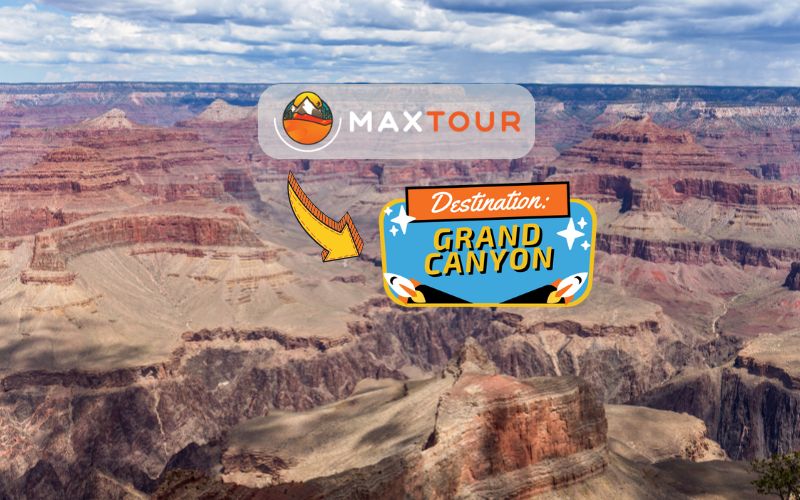
Do I need a permit to hike in the Grand Canyon?
The permit requirements for hiking in the Grand Canyon depend entirely on the type of hike you're planning and where you intend to stay overnight. While many visitors can explore the canyon's rim trails and even venture partway down the main corridor trails without any permits, backcountry camping and certain extended hiking activities require advance permits that can be challenging to obtain. Understanding these requirements is crucial for planning your Grand Canyon adventure, as permit violations can result in significant fines and potentially dangerous situations for unprepared hikers.
3 Quick FAQs
Q: Do I need a permit for day hiking in the Grand Canyon? A: No permits are required for day hiking on any Grand Canyon trails, including popular routes like Bright Angel Trail and South Kaibab Trail, as long as you return to the rim the same day.
Q: When do I need a backcountry permit? A: Backcountry permits are required for all overnight stays below the rim, including camping at designated campgrounds like Bright Angel Campground and Indian Garden, or any backcountry camping.
Q: How far in advance should I apply for permits? A: Permit applications are accepted up to 4 months in advance, and popular dates fill up quickly. Apply on the first day of the month, 4 months before your intended trip date.
Day Hiking Without Permits
The majority of Grand Canyon visitors can explore the park's hiking trails without any permit requirements. Day hiking is permitted on all trails within Grand Canyon National Park, including the popular Bright Angel Trail, South Kaibab Trail, and North Kaibab Trail. You can hike as far down into the canyon as your fitness level and preparation allow, provided you return to the rim the same day.
Popular day hikes include descending to Ooh Aah Point on the South Kaibab Trail, hiking to Indian Garden on the Bright Angel Trail, or exploring the easier Rim Trail that connects various viewpoints. These adventures offer incredible canyon experiences without the complexity of permit applications or overnight gear requirements.
However, day hiking in the Grand Canyon requires serious preparation and respect for the challenging environment. The park service strongly emphasizes that hiking down is optional, but hiking up is mandatory. Many hikers underestimate the difficulty of ascending thousands of feet in elevation, often in extreme heat, leading to numerous rescue situations each year.
Backcountry Permit Requirements
Any overnight stay below the rim requires a backcountry permit, regardless of whether you're camping at established campgrounds or in designated backcountry areas. This includes popular destinations like Bright Angel Campground near Phantom Ranch, Indian Garden, and the numerous backcountry camping zones throughout the park.
Backcountry permits are required for several reasons, primarily visitor safety and environmental protection. The permit system allows park rangers to track who is in the backcountry, ensuring that search and rescue operations can be conducted effectively if needed. Additionally, permits help limit the number of people camping in fragile desert environments, protecting the ecosystem from overuse.
The permit application process requires detailed trip planning, including specific dates, group size, intended campsites, and hiking experience information. Applicants must demonstrate adequate preparation and understanding of the challenges involved in Grand Canyon backcountry travel.
Permit Application Process
Backcountry permits can be obtained through several methods, with online applications being the most common approach. The permit system operates on a first-come, first-served basis, with applications accepted starting four months before the intended trip date. Popular dates, especially during spring and fall months, often fill within hours of becoming available.
Applications require a non-refundable processing fee plus nightly camping fees for each person in your group. Costs vary depending on the specific camping areas and group size, but typically range from $25-40 per person for a multi-day trip. These fees support trail maintenance, ranger services, and environmental protection programs.
The application process requires detailed itinerary planning, including specific camping locations for each night. Flexibility in your dates and camping preferences significantly improves your chances of obtaining permits, as popular locations like Bright Angel Campground fill quickly while more remote areas may have availability.
Special Considerations and Exceptions
Certain activities within the Grand Canyon require additional permits beyond standard backcountry permits. River rafting trips, whether commercial or private, require separate river permits that are even more difficult to obtain than hiking permits. Private river permits often have waiting lists measured in years rather than months.
Commercial guided hiking tours and mule trips operate under different permit systems managed by authorized concessionaires. These trips include permits in their package prices, making them an option for visitors who cannot obtain individual permits or prefer guided experiences.
Some areas of the Grand Canyon, particularly on the North Rim, have specific regulations and permit requirements that differ from the general backcountry permit system. Researching the specific requirements for your intended hiking area is essential for compliance.
Planning Strategy and Alternatives
Successfully obtaining Grand Canyon backcountry permits requires strategic planning and flexibility. Applying for permits on the first available day, maintaining flexible dates, and considering less popular camping areas all improve your chances of success. Having backup plans and alternative hiking destinations helps ensure you can still enjoy the Grand Canyon even if your first-choice permits are unavailable.
For visitors unable to obtain backcountry permits, excellent alternatives exist including staying at Phantom Ranch, which operates on a different reservation system, or planning challenging day hikes that provide incredible canyon experiences without overnight requirements.
Understanding Grand Canyon permit requirements ensures you can plan an appropriate and legal hiking adventure while helping protect this incredible natural resource for future generations of visitors to enjoy.
